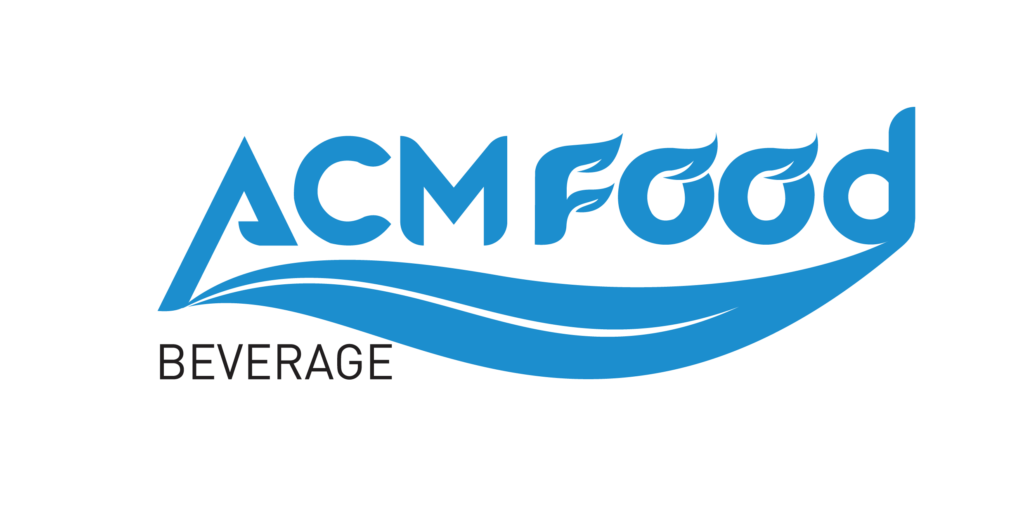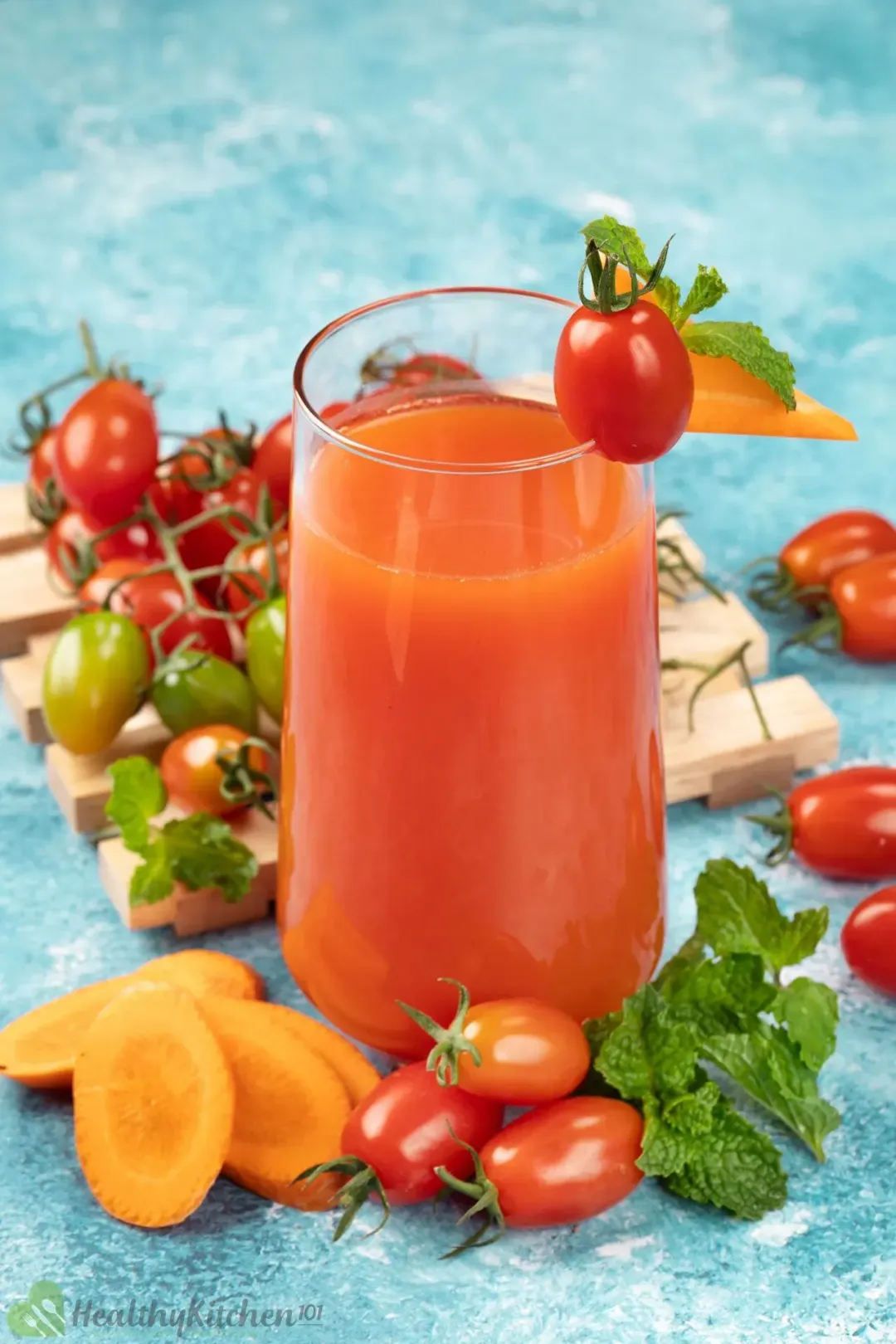Tomato juice is a popular drink all around the world, loved for its refreshing taste and numerous health benefits. Made from ripe tomatoes, this beverage has been enjoyed for centuries and continues to be a staple in many households. From providing essential nutrients to being a versatile ingredient in cooking, tomato juice has become a go-to option for those looking for a healthy and flavorful beverage. However, with so many brands and suppliers available, it can be challenging to find the best quality tomato juice. In this blog post, we will discuss everything you need to know about sourcing the best tomato juice suppliers for your business.
Contents
- 1 Sourcing the Best Tomato Juice Suppliers for Your Business
- 2 Unlocking the Benefits of Canned Tomato Juice
- 3 Own Brand Tomato Juice: Creating a Unique Identity
- 4 Exploring the Finest Tomato Juice Vietnam Has to Offer
- 5 The Health Properties of Tomato Juice
- 6 Tomato Juice: A Culinary Ally for Flavorful Dishes
- 7 The Rise of Tomato Juice as a Popular Ingredient
- 8 Tomato Juice Production: From Farm to Table
- 9 Sustainability in the Tomato Juice Industry
- 10 Conclusion
Sourcing the Best Tomato Juice Suppliers for Your Business

When it comes to finding the best tomato juice supplier for your business, there are a few key factors to consider. These include the quality of the product, the reliability of the supplier, and the production process. Here, we will delve into each aspect in detail to help you make an informed decision.
Quality of the Product
The first and most crucial factor to consider when sourcing a tomato juice supplier is the quality of the product. As with any food or beverage, the quality of the ingredients used directly impacts the final product’s taste and nutritional value. Therefore, it is essential to source tomato juice from suppliers who prioritize using high-quality tomatoes and follow strict production standards.
A reputable tomato juice supplier will ensure that their tomatoes are grown without the use of harmful chemicals and pesticides. They will also have a rigorous process in place to select only the freshest and ripest tomatoes for their juice. This ensures that the flavor and nutrient profile of the juice remains intact, providing consumers with a superior product.
Another indicator of quality is the supplier’s certifications and accreditations. Look for suppliers who have obtained relevant certifications such as ISO 22000, which ensures that the product meets international food safety standards. These certifications are a testament to the supplier’s commitment to providing safe and high-quality products.
Reliability of the Supplier
Apart from the quality of the product, it is crucial to work with a reliable tomato juice supplier. This means choosing a supplier who can consistently provide you with the required amount of product at a stable price. An unreliable supplier can cause disruptions to your business, leading to delays and potentially loss of customers.
To ensure reliability, do thorough research on potential suppliers. Look into their track record, read reviews from previous clients, and ask for references. A reliable supplier will have a good reputation in the market and will be transparent about their production processes and pricing.
Additionally, it is beneficial to establish open communication with your supplier. This will allow you to address any concerns or issues promptly, ensuring a smooth working relationship.
Production Process
Understanding the production process of a tomato juice supplier is crucial in determining the quality of the product. A reputable supplier will have a transparent and well-documented production process that adheres to food safety standards. This includes proper storage, handling, and packaging of the tomatoes to maintain their freshness and nutritional value.
It is also essential to consider the packaging material used by the supplier. Choosing cans over other packaging options is a wise choice as they are more durable, prevent light exposure, and are recyclable. This ensures that the tomato juice remains fresh and retains its nutrients throughout its shelf life.
Unlocking the Benefits of Canned Tomato Juice
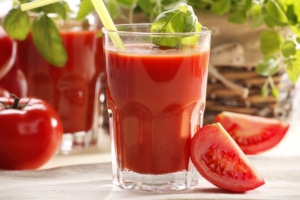
Canned tomato juice has become a popular option among consumers due to its long shelf life, convenience, and retained nutritional value. Here are some of the benefits of choosing canned tomato juice over other forms:
- Longer Shelf Life: Canned tomato juice can last up to 18 months, depending on the storage conditions. This makes it an excellent choice for businesses looking to stock up on a product with a longer shelf life.
- Convenience: Canned tomato juice is easy to store and transport, making it a convenient option for both suppliers and customers. Its compact size also makes it ideal for households with limited storage space.
- Nutritional Value: Canning is a preservation method that helps retain the nutritional value of tomatoes, making canned tomato juice just as nutritious as fresh tomato juice. This means consumers can still enjoy all the health benefits of tomato juice without worrying about spoilage.
- Versatility: Canned tomato juice can be used in various dishes, from soups and stews to sauces and marinades. Its concentrated flavor adds a depth of taste to any recipe, making it a versatile ingredient in cooking.
When choosing a tomato juice supplier, opt for one that specializes in canning their product. A supplier who has expertise in this preservation method will ensure that the canned tomato juice maintains its quality and nutritional value.
Own Brand Tomato Juice: Creating a Unique Identity
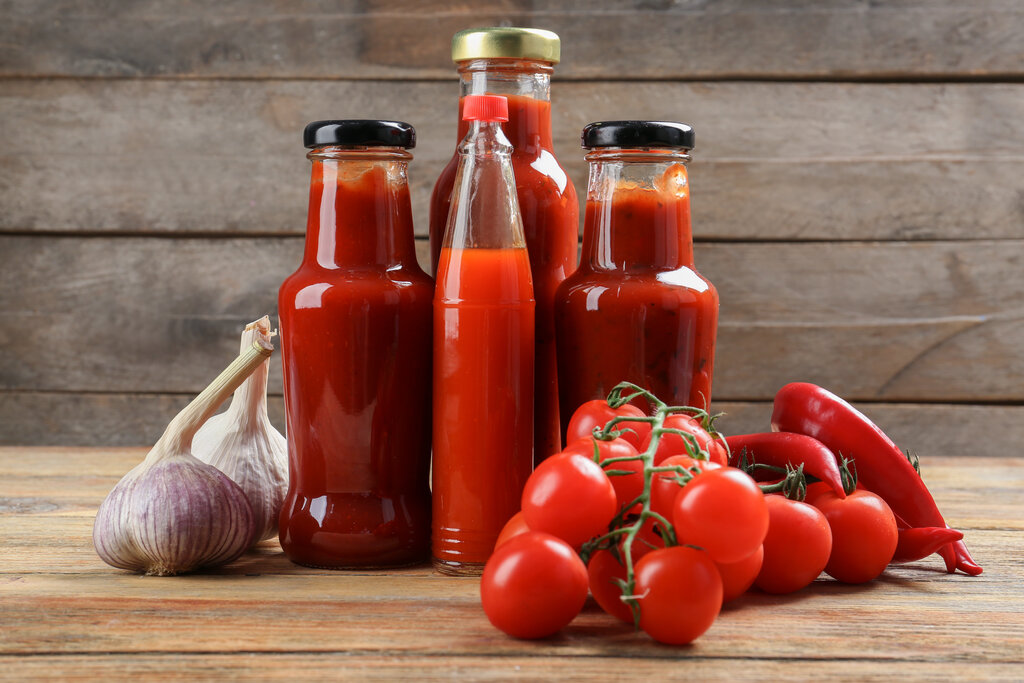
For businesses looking to stand out in the market, creating an own brand tomato juice is an excellent option. This allows you to market your product under a unique identity and set your prices and production standards. Here are some factors to consider when creating your own brand of tomato juice:
Target Market
Before creating your own brand of tomato juice, it is essential to understand your target market. Who are you trying to sell the product to? What are their preferences and buying habits? Conduct market research to gain insights into your potential customers’ needs and tailor your product accordingly.
Product Differentiation
With so many brands of tomato juice available, it is crucial to differentiate your product from others in the market. This could be in terms of packaging, flavor profile, or even the source of your tomatoes. For example, if your target market values organic products, sourcing organic tomatoes for your juice will set your product apart from others.
Branding and Marketing
Creating a unique brand name and logo for your tomato juice is essential in building brand recognition. This should be accompanied by a strong marketing strategy to promote your product and reach your target market effectively. Utilize social media, influencer marketing, and other advertising channels to create brand awareness and attract potential customers.
Quality Control
As an own brand tomato juice supplier, it is crucial to have strict quality control measures in place. This ensures that your product maintains its quality and consistency, building trust with your customers. Regularly testing your product and obtaining necessary certifications will also boost your credibility as a supplier.
Exploring the Finest Tomato Juice Vietnam Has to Offer

Vietnam is known for its abundant agriculture, particularly for producing high-quality tomatoes. Therefore, it comes as no surprise that Vietnam is also home to some of the best tomato juice suppliers in the world. Here are some reasons why you should consider sourcing tomato juice from Vietnam:
- Fresh and Flavorful Tomatoes: Vietnam’s warm climate and fertile soil make it the perfect environment for growing flavorful and nutrient-rich tomatoes. These tomatoes are then used to produce high-quality tomato juice.
- Advanced Production Techniques: Many tomato juice suppliers in Vietnam use advanced production techniques to ensure the best quality products. These include modern canning methods, strict quality control measures, and efficient packaging processes.
- Competitive Pricing: Due to lower labor and production costs, tomato juice suppliers in Vietnam are able to offer competitive prices without compromising on the product’s quality.
- Sustainable Practices: With a growing focus on sustainability, many suppliers in Vietnam have adopted eco-friendly practices in their production processes. This includes using renewable energy, reducing waste, and implementing responsible farming methods.
When sourcing tomato juice from Vietnam, it is important to work with a reputable supplier who follows ethical and sustainable practices. This not only helps support local farmers and businesses but also contributes to a healthier planet.
The Health Properties of Tomato Juice

Tomato juice has become a popular beverage among health-conscious individuals due to its numerous health benefits. Here are some of the key nutrients found in tomato juice and their potential health benefits:
Lycopene
Lycopene is a powerful antioxidant found in tomatoes that give them their vibrant red color. This antioxidant is believed to have anti-inflammatory properties, making it beneficial for those with chronic diseases such as heart disease and diabetes. It also has been linked to lower rates of prostate and lung cancer.
Vitamin C
Tomatoes are a rich source of vitamin C, an essential nutrient that supports a healthy immune system. It also aids in collagen production, keeping skin and joints healthy. Consuming tomato juice regularly can help boost your vitamin C intake and prevent deficiencies.
Potassium
Potassium is an electrolyte that helps regulate blood pressure and maintain proper nerve and muscle function. Tomato juice is a good source of this mineral, making it a heart-healthy beverage.
Vitamin A
Vitamin A is vital for maintaining healthy eyesight and promoting healthy skin. Tomatoes contain beta-carotene, which is converted into vitamin A in the body. Drinking tomato juice regularly can help improve vision and promote clear, glowing skin.
In addition to these nutrients, tomato juice also contains other vitamins and minerals such as folate, iron, and magnesium, making it a nutritious addition to any diet.
Tomato Juice: A Culinary Ally for Flavorful Dishes
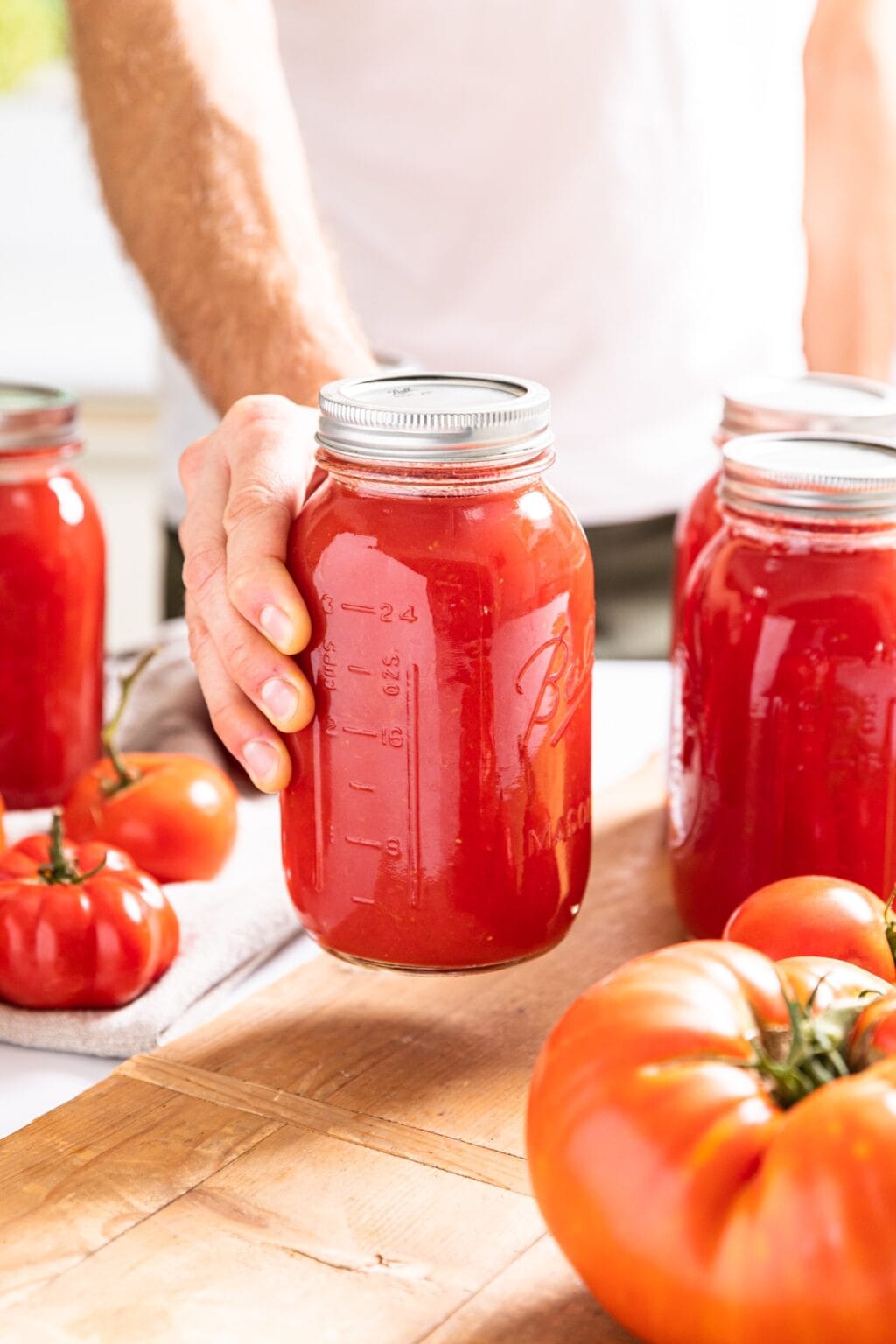
Tomato juice has become a staple ingredient in many dishes, thanks to its concentrated flavor and versatility. Here are some ways you can use tomato juice in your cooking:
Soups and Stews
Tomato juice is an excellent base for soups and stews, providing a rich and tangy flavor. It can be used in traditional dishes such as gazpacho or as a substitute for broth in chicken noodle soup.
Sauces and Marinades
The thick consistency of tomato juice makes it an ideal ingredient for sauces and marinades. You can use it in pasta sauces, pizza sauce, or even as a marinade for meats and vegetables.
Cocktails
Tomato juice is a key ingredient in popular cocktails such as Bloody Mary and Red Snapper. Its tangy flavor pairs well with alcohol, making it a refreshing beverage option.
The Rise of Tomato Juice as a Popular Ingredient
Over the years, tomato juice has gained popularity not just as a beverage but also as a versatile ingredient in cooking. Its rich flavor and nutritional benefits have made it a go-to option for many chefs and home cooks. Here are some reasons why tomato juice has become a popular ingredient:
Convenience
Using canned tomato juice in cooking eliminates the need to chop and prepare fresh tomatoes. This saves time and makes cooking more convenient, especially for large-scale food production.
Flavor Enhancement
The concentrated flavor of tomato juice adds depth to any dish, enhancing its overall taste. It is particularly beneficial in dishes that require a long cooking time, such as stews and slow-cooked meats.
Health Benefits
As mentioned earlier, tomato juice is packed with essential nutrients that offer numerous health benefits. By using it in cooking, you can incorporate these nutrients into your diet without sacrificing flavor.
Vegan and Vegetarian-Friendly
Tomato juice is a vegan and vegetarian-friendly ingredient, making it an excellent choice for plant-based dishes. Its versatility allows it to be used in various recipes, from soups and sauces to meat alternatives and salads.
Tomato Juice Production: From Farm to Table
To better understand the tomato juice supply chain, let’s take a look at the production process from farm to table:
Farming
Tomatoes are grown in warm and sunny climates, making countries like Vietnam, Italy, and Spain ideal for cultivation. After planting, tomatoes take about three months to ripen, after which they are harvested. Many tomato farms use sustainable farming practices to ensure the health of the soil and reduce waste.
Sorting and Cleaning
After harvesting, tomatoes are sorted based on their size, shape, and color. This ensures that only the best quality tomatoes are used for juice production. They are then cleaned using water and sometimes a disinfectant to remove any dirt or impurities.
Processing
The sorted and cleaned tomatoes are then crushed to extract the juice. The extracted juice is then pasteurized, which involves heating it to kill any bacteria and prolong shelf life. This juice is then packaged in cans or other forms of packaging.
Distribution
Once canned, tomato juice is ready to be distributed to suppliers, retailers, and other businesses. Depending on the supplier’s location, this could involve domestic or international shipping.
Storage
Upon reaching its destination, tomato juice is stored in warehouses before being distributed to retailers or consumers. Proper storage is essential to maintain the product’s freshness and quality.
Consumption
Finally, the tomato juice reaches the end consumer, who can enjoy it as a refreshing beverage or use it in cooking.
Sustainability in the Tomato Juice Industry
As with any industry, sustainability has become a growing concern in the tomato juice market. Here are some ways that the industry is working towards more sustainable practices:
Eco-Friendly Packaging
Many tomato juice suppliers have moved towards using eco-friendly packaging materials such as cans made from recycled aluminum. This reduces waste and promotes recycling.
Responsible Farming Practices
As mentioned earlier, many tomato farms have adopted sustainable farming practices to minimize the environmental impact of production. These practices include reducing chemical usage, crop rotation, and soil conservation.
Ethical Labor Standards
Sustainable production also involves ensuring fair labor practices. This means providing safe working conditions, fair wages, and proper training for employees.
Energy Efficiency
Tomato juice suppliers are increasingly investing in energy-efficient technology to reduce their carbon footprint. This includes using renewable energy sources such as solar panels and utilizing energy-saving equipment in production.
Conclusion
Tomato juice is not just a delicious beverage, but also a nutritious ingredient that adds flavor to various dishes. When sourcing tomato juice for your business, consider the quality of the product, reliability of the supplier, and the production process. Opting for canned tomato juice offers numerous benefits such as longer shelf life, convenience, and retained nutritional value. Creating your own brand of tomato juice can also help set your product apart in a competitive market. Vietnam is known for producing some of the best tomatoes and tomato juice, making it an excellent source for businesses looking for high-quality products. With its numerous health benefits and versatility in cooking, tomato juice has become a popular choice among consumers and chefs alike. By understanding the production process and supporting sustainable practices, we can all contribute to a healthier and more environmentally friendly tomato juice industry.
